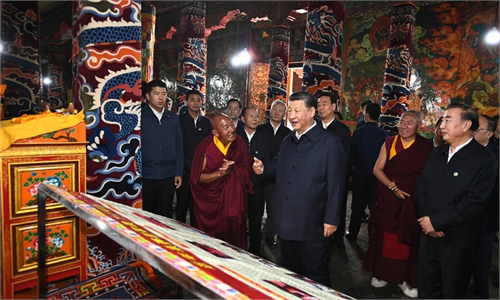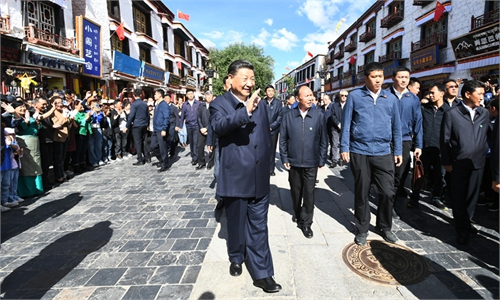Xi inspects Tibet, first time in Party’s, country’s history
Central govt’s commitment to boosting region’s economic growth, stability
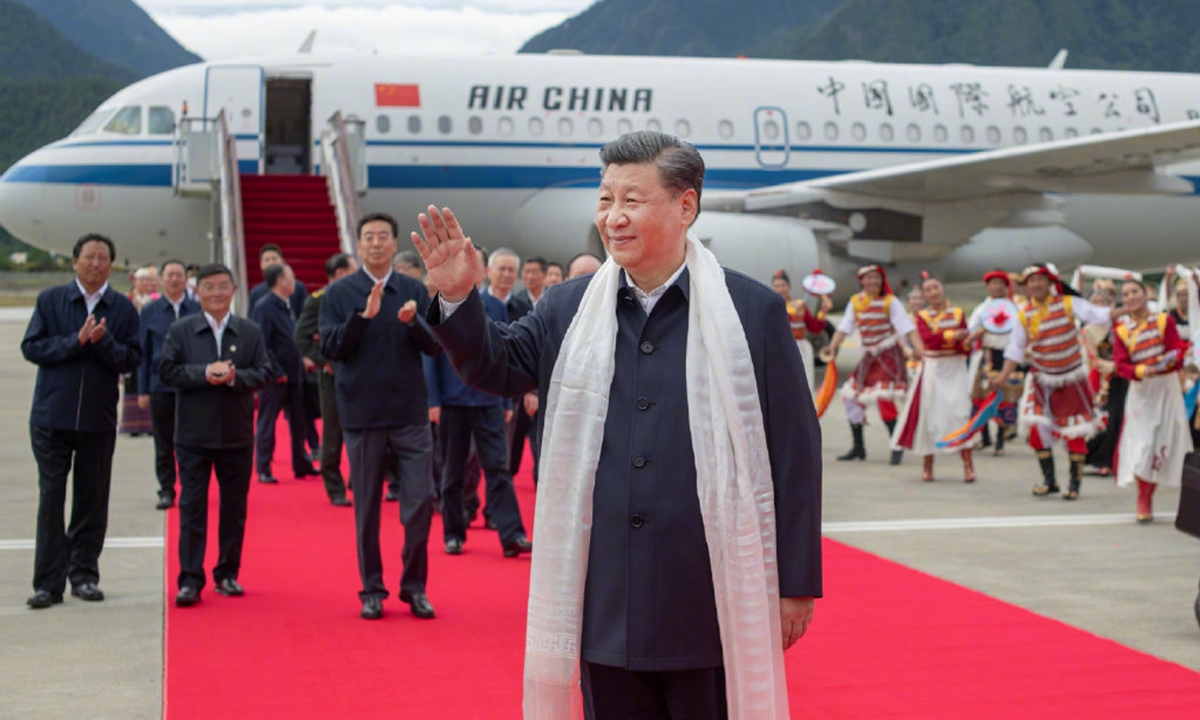
Photo: Xinhua
President Xi Jinping, also general secretary of the Communist Party of China Central Committee and chairman of the Central Military Commission, visited Southwest China's Tibet Autonomous Region from Wednesday to Friday for the 70th anniversary of Tibet's peaceful liberation, the first time in the history of the Party and the country, the Xinhua News Agency reported Friday.
During the visit, Xi stressed fully implementing the guidelines of the Communist Party of China (CPC) for governing Tibet in a new era and writing a new chapter of lasting stability and high-quality development for the plateau region.
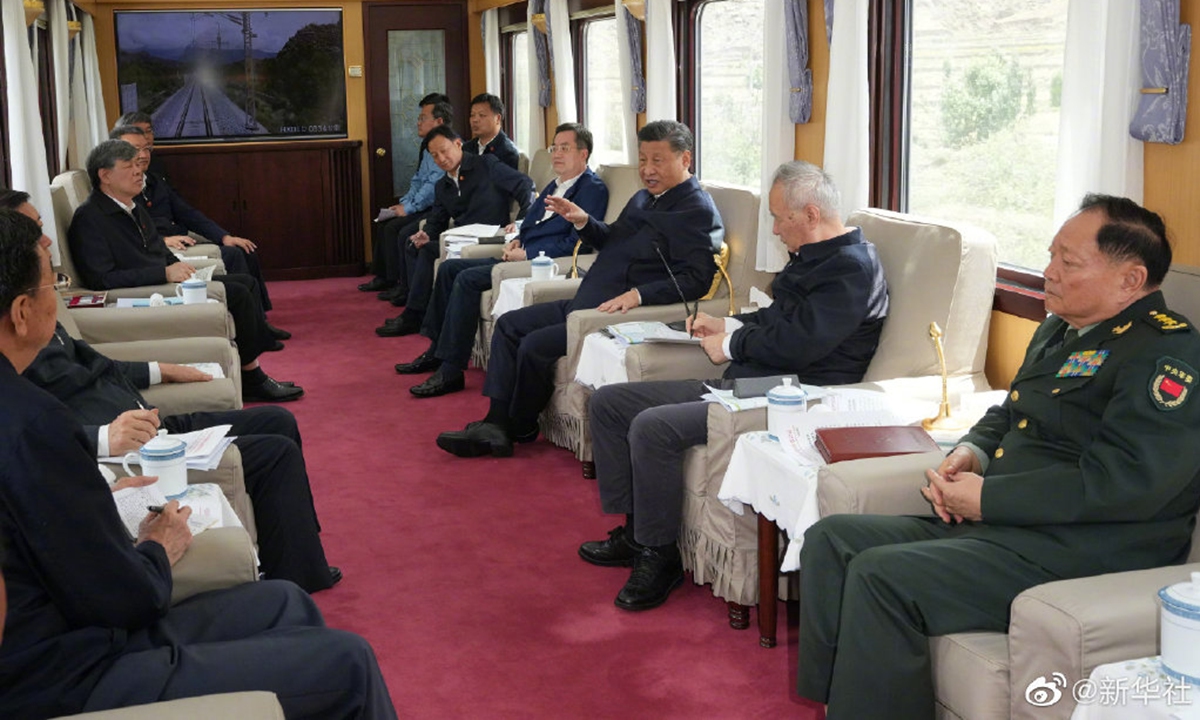
Photo: Xinhua
On Friday, Xi met with representatives of troops stationed in Tibet, calling for efforts to strengthen military training and preparedness in all aspects and make contributions to the lasting stability, prosperity and development of Tibet.
Xi said development in all sectors should serve ethnic unity and progress, and should help improve people's livelihood and build consensus.
During the visit, Xi also inspected Nyingchi and the regional capital Lhasa, as well as a number of key local infrastructure projects, including the Lhasa-Nyingchi section of the Sichuan-Tibet Railway project.
On Thursday, Xi went to Nyingchi railway station, learning about the overall design of the Sichuan-Tibet Railway and the Lhasa-Nyingchi railway section, which started service in June, and then took the newly opened train to Lhasa. He inspected the construction along the railway during the ride.
Nyingchi is an important and strategic transportation hub along the Sichuan-Tibet Railway, which extends more than 1,740 kilometers from Chengdu, capital of Southwest China's Sichuan Province, to Lhasa. A major and strategic section of the railway that connects Lhasa with Nyingchi started operating in June, where China's most advanced Fuxing bullet train for the first time ran on the Qinghai-Tibet plateau and passed through the Yarlung Zangbo River. The Lhasa-Nyingchi railway is also Tibet's first electrified railway.
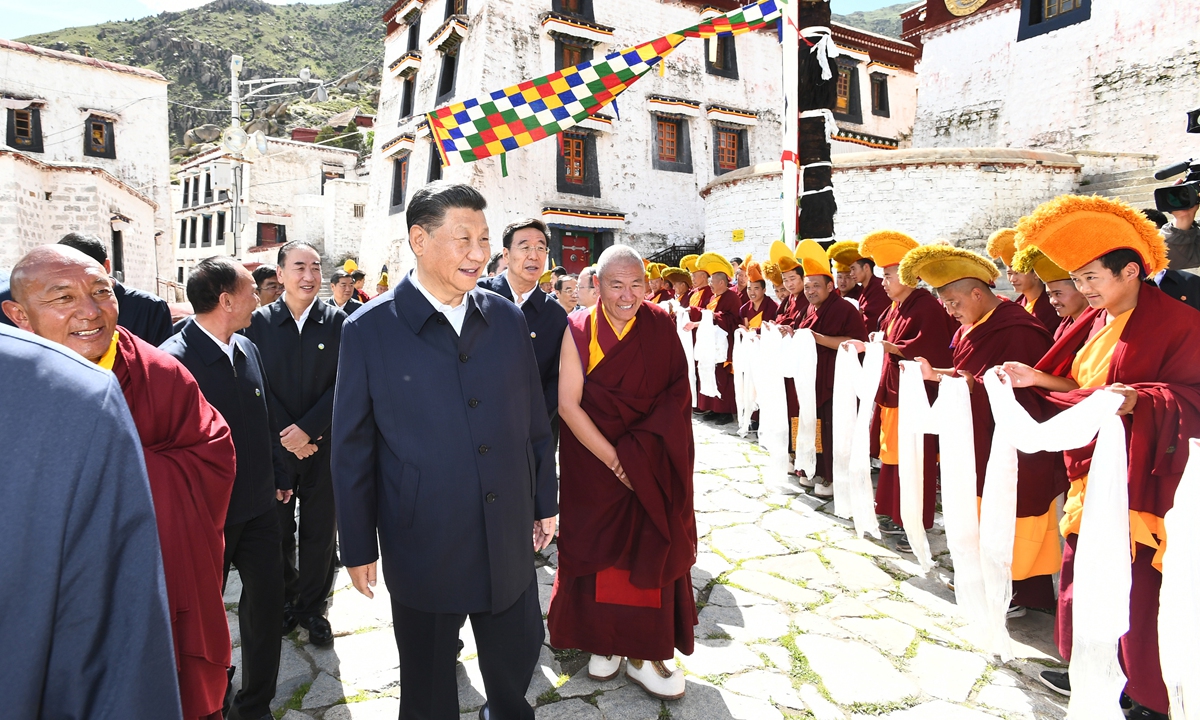
Chinese President Xi Jinping visits the Drepung Monastery in Southwest China's Tibet Autonomous Region on Thursday. Photo: Xinhua
Analysts said Xi's visit shows the central government's emphasis on boosting the economic growth and stability of Tibet as well as improving local residents' livelihood in the next round of development.
"China has listed the development of border areas in the next five-year plan, and reducing the gap between western and eastern areas is also an important goal to be achieved, marching toward the second centenary goal," Lou Chunhao, deputy director of the Institute of South Asian Studies at the China Institutes of Contemporary International Relations, told the Global Times on Friday.
The Sichuan-Tibet Railway, once completed, will reduce travel time from other regions to Tibet by 30 percent. It will also cut travel time from Chengdu to Lhasa from 48 hours to 13 hours.
Observers said that the rail line could further enhance Tibet's status in the national railway network, greatly boost the region's economic development and even generate an economic radiation effect to neighboring countries.
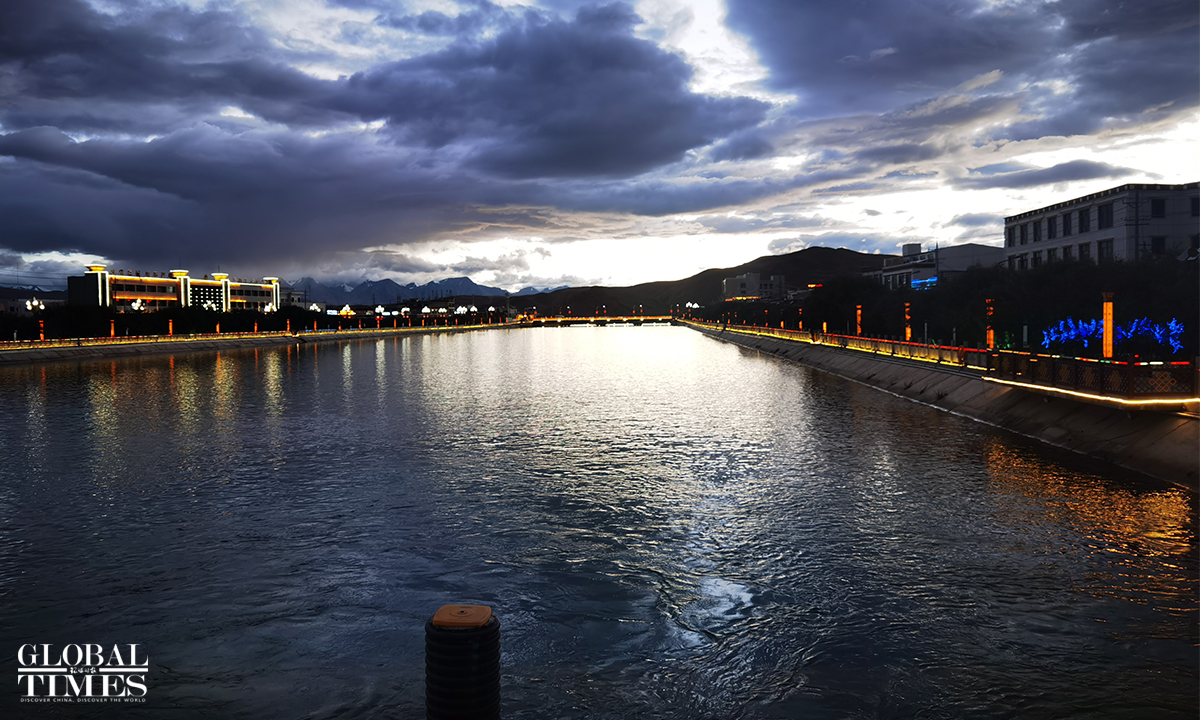
Photo: Yang Sheng/GT
"As infrastructure connectivity improves, Tibet could also be built into a frontier of opening-up in Southwest China. For example, Tibet could facilitate trade and economic cooperation with Nepal," Lou said, also noting that Tibet's deep integration into the national rail enables the efficient transportation of bulk goods and cargo in and out of the region.
In November 2020, China State Railway Group Company started the construction of the Ya'an-Nyingchi section, another important section of the Sichuan-Tibet Railway.
China's National Development and Reform Commission, the country's economic planner, has listed promoting the construction of the Sichuan-Tibet Railway as a key project in the nation's railway development. The Sichuan-Tibet Railway is the second railway running to Tibet after the Qinghai-Tibet Railway.
Xi also made an inspection tour of Lhasa on Thursday. He visited the Drepung Monastery, Barkhor Street and the Potala Palace square in Lhasa to learn about the work on ethnic and religious affairs, the conservation of the ancient city, as well as the inheritance and protection of Tibetan culture.
Xi arrived at the Nyingchi Mainling Airport on Wednesday and was warmly welcomed by local people and officials of various ethnic groups. He then visited the Nyang River Bridge to inspect the ecological preservation in the basin of the Yarlung Zangbo River and its tributary Nyang River.
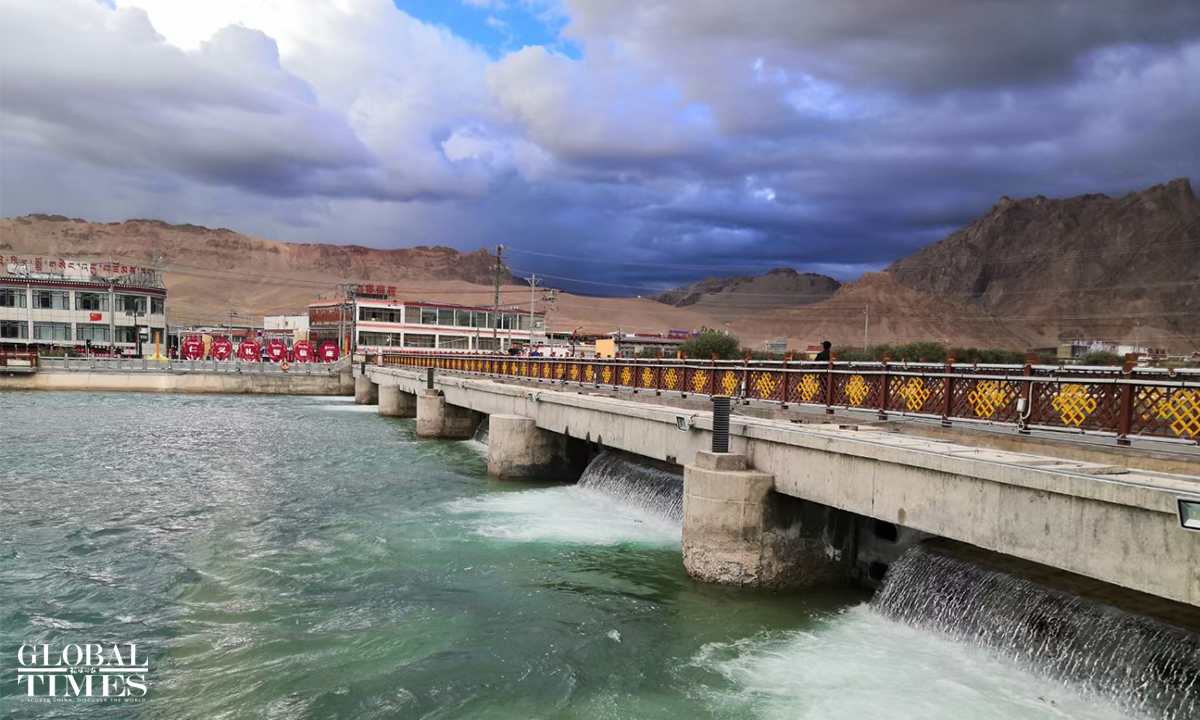
Photo: Yang Sheng/GT

